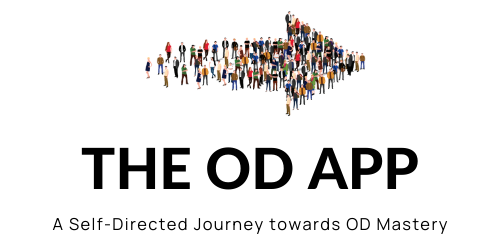Part I – My journey into Group Process Consultation
When you grow up in a family with seven kids, including five sisters and a brother, there are always interesting dynamics at play. There were times when I was an instigator and times when I was the instigated, but I never really understood why these things were happening or how to change the dynamic. My first T group in NTL, in the 80s, gave me some insights into what I was doing, how I was seen, and how I was colluding in my own demise. It has been a 40-year long path of self-discovery, study, writing, teaching group process, and staffing T groups for NTL, which brings me to this spot with hopes of many more years of learning and growth.
The key lesson for me has been that it is not the smartest or most efficient or best educated, nor is it the person with the corner office that has the most influence on what happens in a group. It is the person who can see what’s happening with the group’s process and intervene to change the dynamic. At the highest level, that would be Emotional Intelligence. But Group Process Consultation, or GPC, is much more specific and targeted and requires skills and knowledge well beyond EI. In the end, we are the species that survived evolution because we lived and worked together to overcome the elements of a harsh environment.
For us, of the species ‘Homo sapiens sapiens’ – the species that knows and knows it knows – our ability to work and thrive in social and group settings is essential to our success, and, throughout history, our very survival. Understanding what is happening and intervening to achieve a different outcome in the groups in our work and our lives is essential to our success in OD and in the world.
Part II – What is Group Process Consultation?
We are trained in life to be focused on the work, on the task. Keep busy, stay productive, contribute to the organization and society. That mindset narrows our focus to what we do and the things we produce every day. We prize the product, the result, much more than the means of getting there. There are consultants of all shapes and sizes all around the world who can tell you how to produce a product better, faster, and cheaper.
But they can’t tell you what derails your leadership meetings or how to make your teams more effective. The variables that govern human behaviours are the ones we want to notice and respond to. Group Process Consultation is ‘the reasoned and intentional interventions by the consultant, into the ongoing events and dynamics of a group, with the purpose of helping the group effectively attain its agreed-upon objectives’ (Reddy, 1996, p.8).
An iceberg is a handy metaphor for understanding GPC variables.
Being able to notice and track what is happening below the waterline is extremely handy when we are participating in a group or team. The below-the-waterline variables listed above are a good start. However, it is extremely difficult to pay attention to the achievement of the task (above the waterline) and the process variables (below the waterline) and still effectively intervene on either or both.
A Group Process Consultant focuses on only the process variables below the waterline, figuring that the group members know the task and its organizational environment better than anyone else but are so engaged in the task that they miss some of the dynamics occurring below the waterline.
Part III – Core Requirements for Group Process Consulting
In just about every other realm, knowing something about the organization and how it works is critical to a consultant’s success. Even in OD consulting, it is absolutely necessary when you are working above the waterline, at the task level of the organization.
However, when you’re working exclusively below the waterline, at the process level, many times, in-depth knowledge about the organization can get in the way of observing and intervening on the group process.
In the mid-21st century, there are not many consulting contracts to do exclusively group process consulting. While the truest and most helpful form of OD consulting marries knowledge of the organization and its task with a powerful ability to notice and intervene on group process variables, it is the latter that requires the most attention and skill building, and not just in a certificate program or graduate school. This work is a lifelong effort of self-observation and self-improvement.
The competencies for group process consulting can be thought of in five areas:
| Competency | Things to Know and Do | |
|---|---|---|
| 1 | Theory Grounded – the body of knowledge |
|
| 2 | Conceptual and technical understanding of groups, group dynamics |
|
| 3 | Technical and practice expertise – deep expertise in observing, diagnosing and intervening at group level |
|
| 4 | Able and willing to create safe space for the group to do its work; skilled at observing and confronting evidence of inequality,power imbalance, prejudice and other forms of negative bias |
|
| 5 | Ethics and values |
|
| 6 | Use of Self – show healthy self-management habits in the here and now |
|
| 7 | Continuous development of self and other awareness |
|
Adapted from the Use of Self research by Mee-Yan Cheung-Judge and Davd Jamieson (2020) and Cheung-Judge (2015)
Part IV – Ways of Development (and resources)
Learning and building these skills takes a solid foundation of knowledge, a lot of practice, and a fair amount of humility.
Getting grounded in theory and principles – There are several reliable sources for learning the underlying principles and theory of group process consultation.
- Become a student of group theory. Read books and articles from the bibliography below.
- Any self-respecting graduate program in counselling or organization development will have some theory and likely an opportunity to practice as well.
- I know of five specialised training institutes that offer programs where you can experience group processes first-hand and unpack them with facilitators trained in various theories and methodologies:
- NTL Institute (www.ntl.org)
- NTL Europe (https://ntl-od.uk/)
- The Tavistock Institute (www.tavinstitute.org)
- The A. K. Rice Institute (www.akriceinstitute.org/)
- Indian Society for the Applied Behavioural Science (www.isabs.org/)
Practising, with coaching and support – With a solid grounding in the theories and principles of group development, reach for as many opportunities to design and facilitate the work of groups and teams as you can. The more you work with teams, while standing on a good solid theory base, the more you will see the stages and phases of group development and the group-process dynamics that occur below the waterline. It is even better if you can join or partner with a senior practitioner who is also well grounded in group theory, who can help coach you and explain their interventions. The first few times you facilitate a group on your own can be frightening, but with practice you start to see not just events and transactions, but patterns (and that’s where your true insights lie).
Group therapy is also a powerful way to experience groups first-hand, which can become a learning laboratory for developing your insights and skills.
In summary, Bob Marshak (an OD Professional) said that a competent OD Practitioner needs to be a good diagnostician, a social science researcher, an interventionist, an educator and trainer, a facilitator, and a coach. The GPC role requires us to be competent in all of these areas.
Bibliography – Related Training
- https://futuresearch.net/
- https://www.dannemillertyson.com/how-we-work/whole-scale-change-approach/
- http://axelrodgroup.com
Psychoanalytic Theories
- https://wiki.starbase118.net/wiki/index.php/Psychology_Primer:_Psychoanalytic_Theory/Freud
- https://www.simplypsychology.org/carl-jung.html
- Segal, M. (1996) Points of Influence: A Guide to Using Personality Theory at Work. New Jersey: Jossey-Bass.
- Manfred, F. R. and Miller, D. (1991) The Neurotic Organization: Diagnosing and Changing Counterproductive Styles of Management. New Jersey: Jossey-Bass.
Group Development Theories
- Overview: https://www.minahangroup.com/nuggets/od-review/group-development-meet-the-theorists
- Group Development Tools: https://www.minahangroup.com/nuggets/od-practitioner/group-development-tools-practitioner-can-use
- Bion’s Basic Assumptions Groups: https://en.wikipedia.org/wiki/Wilfred_Bion
- Schutz’ Theory of Groups https://www.youtube.com/watch?v=HKsJ-NQCyn0
- Tuckman’s Theory of Group Development: https://www.wcupa.edu/coral/tuckmanStagesGroupDelvelopment.aspx
Use of Self
- Cheung-Judge, M. Y. and Davidson, D. W. (2020). ‘Summary of the Global Use of Self (UoS) Research Report’. In Organization Development Review. 52(1), pp. 64–70. – https://theodapp.com/wp-content/uploads/2022/05/Use-of-Self.pdf
- ‘Use of Self: A Process Model’: https://www.minahangroup.com/nuggets/use-of-self-a-process-model
Practical Tools and Concepts
- Working with Groups in Organizations: https://www.minahangroup.com/nuggets/various/working-with-groups-in-organizations
- Working with Groups in Change Programs: https://www.minahangroup.com/nuggets/practicing/using-groups-to-manage-change-programs
- Huntley, R., Moore, R. and Pierce, C. (2017) Journeys of Race, Color and Culture: From Racial Inequality to Equity and Inclusion. NewDynamics Publications, 160 pages. https://rickhuntleyconsulting.com/store.html
- Pierce, C. and Moore, R. (2008) ‘Power Equity Group Theory: A Review for Practitioners’, OD Practitioner, 40(3).
- Yoon, H. J., Farley, S. and Padilla, C. (2020) ‘Organization Development Values From a Future-Oriented Perspective: An International Delphi Study’, Journal of Applied Behavioral Science, 57(2). Available at: https://doi.org/10.1177/0021886320957351




